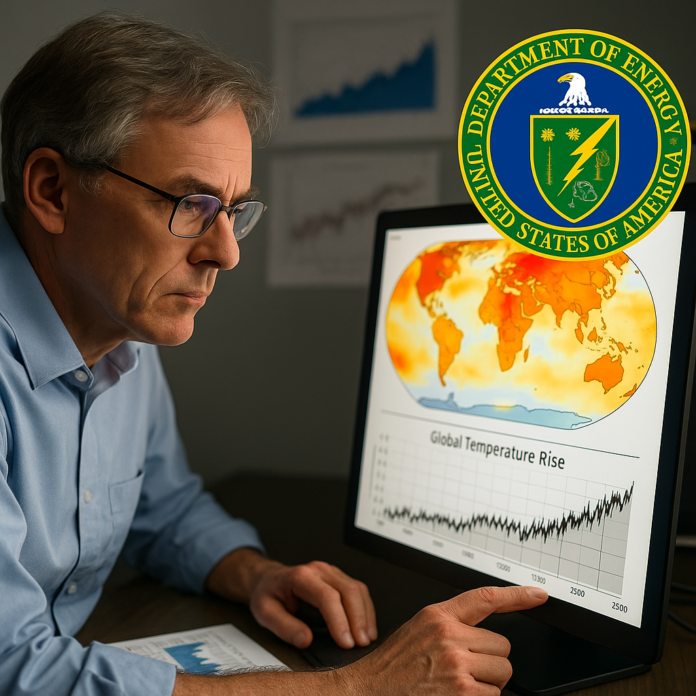
The U.S. Department of Energy (DOE) has come under heavy criticism from climate scientists after releasing a new report that many say misrepresents their research to downplay the role of human activity in global warming. Released on July 29, the report outlines the Trump administration’s rationale for rolling back the 2009 endangerment finding, which underpins the government’s authority to regulate greenhouse gases under the Clean Air Act.
Authored by a small working group including John Christy, Judith Curry, and other scientists known for challenging mainstream climate research, the report has sparked alarm across the scientific community. Researchers told AFP and WIRED that the document misused citations, cherry-picked data, and drew misleading conclusions. Benjamin Santer, an atmospheric scientist and honorary professor at the University of East Anglia, said the report “completely misrepresents” his work, particularly on stratospheric cooling and climate fingerprinting. He emphasized that the DOE’s interpretation contradicted the findings his studies support.
Multiple scientists cited in the document expressed similar concerns. Bor-Ting Jong, an assistant professor at the Vrije Universiteit Amsterdam, said the report mischaracterized her climate modeling research and introduced terminology that distorted her results. Zeke Hausfather, a climate researcher at Berkeley Earth, noted that a figure from his 2019 paper was used to cast doubt on climate models while ignoring that his study concluded the models had performed well in predicting warming trends. Other researchers, including Joy Ward and Josh Krissansen-Totton, said their studies on plant responses to CO2 and ocean acidification were stripped of critical context, producing a misleading impression of the risks posed by climate change.
Critics also pointed to the lack of a rigorous peer-review process. Santer, Jong, and others warned that the report was released without the vetting normally required for documents that are intended to inform public policy. James Rae, a climate researcher at the University of St Andrews, described the report as reading “like an undergraduate exercise in misrepresenting climate science,” expressing concern about the DOE’s shifting approach to scientific communication.
The report positions increased atmospheric CO2 as having potential benefits for plant growth and casts doubt on the urgency of aggressive mitigation strategies. It also claims that recent ocean pH changes fall within natural variability over millennial timescales—an interpretation disputed by experts who emphasize the rapid rate of modern acidification and its impact on marine ecosystems.
In response to the backlash, the DOE stated that the document had undergone internal review by scientific and policy staff and that a 30‑day public comment period will allow further input before the report is finalized. Department spokesperson Andrea Woods said the agency welcomed “substantive comments” and framed the report as part of a broader effort to reassess conventional narratives on climate change.
Mainstream scientists, however, see the publication as part of a broader trend of misrepresenting research to justify policy changes. This is the third instance since January that federal reports have been criticized for misuse of scientific studies. For many in the field, the controversy raises deeper questions about how the federal government is using—or misusing—climate research to guide public decisions.
This image is the property of The New Dispatch LLC and is not licenseable for external use without explicit written permission.